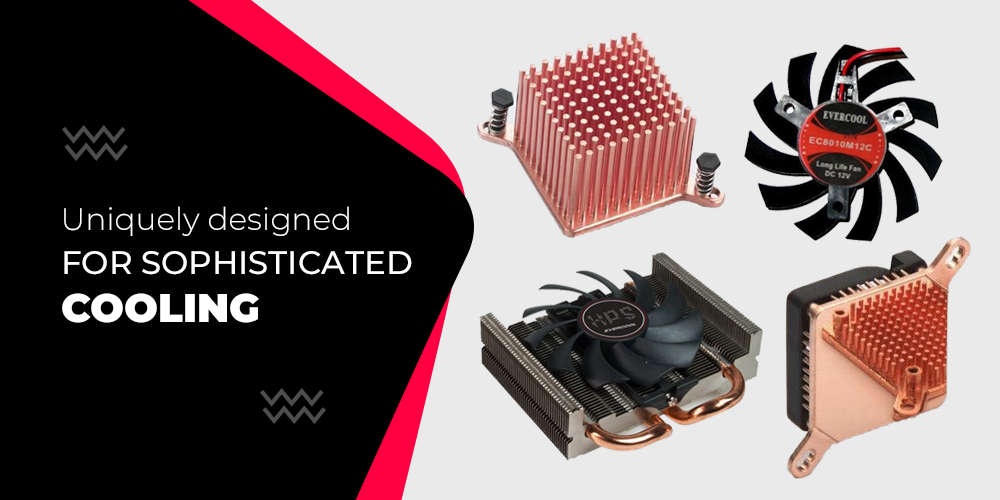What are The Types of Cooling System in Computer?
Computer cooling systems are active or passive cooling systems designed to dissipate excessive heat generated through a Pc. Proper and regular heat dissipation from the systems ensures efficiency and effectiveness while working. This also maintains an optimal performance that ensures the system stays protected against any damage and works for a longer time span.
An era of compact cooling systems

Computers nowadays come with compact, uniquely designed, and sophisticated cooling systems that protect the PC's against overheat. There are majorly two computer cooling systems, the first is air cooling, and the second is liquid cooling. Whether cooling with the help of air or facilitated by liquid, there are various prototypes of cooling systems based on the above principles that either radiate or conduct the heat internally or externally. Let us now look at what these types are, explaining how each dissipates the extra heat.
Types of cooling systems in your PC
1) FansFans, unlike heat sinks, form an active cooling system. They use energy to run, thus enabling the air to circulate. They work on pushing air out of your PCs and laptops through their casing. Fans are used with heat sinks in a computer system wherein a heat sink is first placed on top of it, after which the fan is piled on.
2)Heat sinks
Heat sinks can be applied with multiple components inside the system. Their function is to dissipate the heat from the element they have been fixed to. Commonly used with older CPUs, heat sinks work conventionally and are attached to those parts that do not generate immense heat.
3)Liquid cooling
Working on the same concept as the IC Engines(internal combustions engines), liquid cooling systems have recently been introduced with advanced technology. The most commonly used liquid for cooling purposes is distilled water. This form of computer cooling solution is the best out of all other types for efficient cooling.
It's a combination of active and passive cooling systems

An active and a passive option exist with both air and water cooling systems. With passive systems, the process of cooling at the radiator is conducted through standard air movement. With the active alternative, a fan is responsible for producing the air stream. Active cooling systems are better than the passive ones in terms of cooling rate, but the passive compensates the same with the lower energy consumption and versatility. It's just about choosing the right type for your PC.
Choose the ideal cooling system for your PC
It's an era where PCs are continually switching to modern techniques with more significant design advancements(less intricately designed and ease of operability). Built-in processors are becoming much faster, efficient, and sophisticated. The impact of this stage of modernization has put a more substantial load on the systems with excessive heat generation. There have been ways to counter it in the form of excessive dissipation directly or indirectly. The article addresses the ways for a timely removal of heat so that your system is not left to get damaged or work with reduced efficiency in the end. Its time now to get the best for your PC or laptop! You can just tap the trigger and shop now!

